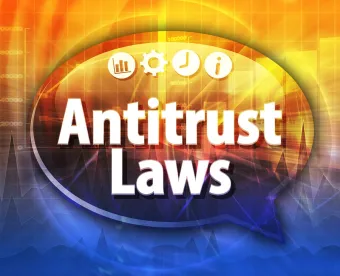The Netherlands
A. Dutch Competition Authority (ACM).
1. ACM announces support for experiment in allowing lawyers to be hired directly by legal-protection insurance companies.
On Dec. 14, 2020, the ACM announced that the experiment of the Netherlands Bar to allow bar members to be employed directly by legal-protection insurance companies was a step in the right direction. Lawyers employed with legal-protection insurers may assist non-insured persons as well. Legal-protection insurers will be granted temporary exemption. From Jan. 1, 2021, lawyers employed with legal-protection insurers can also represent clients that have not taken out legal-protection insurance. The rules of the Netherlands Bar previously prohibited this. The ACM believes this will bring more opportunities for new types of legal services, promoting innovation and giving consumers more options for legal representation.
This is a result of legal-protection insurer SRK’s (BrandMR) complaint with the ACM about Netherlands Bar rules. Partly in response to related questions asked by the ACM, the Netherlands Bar created the opportunity for BrandMR and other legal-protection insurers to act for non-insured persons as well, rendering the complaint moot. This first step of the Netherlands Bar creates a certain degree of leeway for businesses that wish to offer legal assistance by lawyers, but that are not (traditional) law firms. This is a temporary exemption from the existing rules. The Netherlands Bar will evaluate this expansion after five years.
2. ACM imposes fines on four construction firms for illegal arrangements in tender processes in Amsterdam.
On Dec. 3, 2020, the ACM imposed fines totaling EUR 330,000 on four construction companies for conducting illegal arrangements in three bids for the civil-engineering sector in the municipality of Amsterdam. In one or more of the bids, the companies coordinated what bids they would submit. Companies are supposed to compete for these contracts. The ACM seeks to ensure fair competition in tender processes, and takes action if competition is distorted. Martijn Snoep, chairman of the Board of the ACM, commented: “It is extremely important in tender processes that companies compete with one another for those contracts. The client decides who will win the contract, not the bidders among themselves. If competition is distorted, it will result in higher prices, reduced quality, and less innovation. Making any sorts of arrangements regarding bids in tender processes violates the Dutch Competition Act.”
The tender processes in this case involved relatively small projects. Several firms submitted bids to keep themselves “in the picture.” They feared they would no longer be invited to subsequent tender processes if they did not respond to the tender invitation for these projects. In coordination with the other bidders, they submitted bids, even though they did not want to win the contracts. This is prohibited under the Dutch Competition Act. These four companies acknowledged their violation of the rules and accepted the ACM fines. They have taken measures to comply with the rules in the future, so that tender processes such as these will take place fairly. Because one of the contractors is paying compensation to the municipality, ACM lowered the fine on this contractor by 10%.
3. Big Tech and the Dutch payment market: tightening of rules needed to maintain a level playing field.
On Dec. 1, 2020, the ACM clarified that so-called Big Tech companies must ensure that their platforms or devices are suitable for different providers of payment services. The ACM argues in favor of a level playing field for all providers of payment services, now and in the future. The Dutch Ministry of Finance requested the ACM carry out a market study into major tech firms and the Dutch payment market; the study found that the current rules can be supplemented by tightened European rules.
Martijn Snoep, chairman of the Board of ACM, commented: “Big Tech companies can act as a driving force behind competition and, by extension, behind innovation on the Dutch payment market. However, that role does require Big Tech companies to open up their platforms and devices to competing payment services, in the same way that banks do. Only with such a level playing field in place will payment services continue to compete and innovate, and will consumers continue to enjoy freedom of choice. It would be good if the European rules regarding this issue were tightened, before the market is dominated by one or several major competitors.”
-
Market study into the Dutch payment market: The market study gives an overview of the current and the expected trends and developments regarding Big Tech companies on the Dutch payment market, both online and offline. At the moment, the role of Big Tech companies in the Dutch payment market is still limited, but ACM also sees that Big Tech companies are strengthening their positions in the market through acquisitions and collaborations.
-
A level playing field for payment services: Big Tech companies increasingly offer their own methods of payment, both online and offline. In brick-and-mortar stores, more and more options for contactless payments are offered, for example using smartphones or smartwatches. According to ACM, such devices must offer the ability to use various types of payment apps. That is why Big Tech companies must, for example, offer access to other payment services in smartphones or smartwatches. Currently, a popular online platform can refuse competing payment services and can also make it difficult for competitors to function properly on the online platform. This impedes competition and, as a consequence, impedes further innovation.
There are two European rules that help maintain a level playing field for payment services. Big Tech companies that only facilitate payment services currently do not fall under the European rules for open access to payment systems, the PSD2 Directive. The ACM recommends amending this Directive, so that Big Tech companies that only play a facilitating role must also comply with it. In their facilitating role, Big Tech companies are the gateway for payments and can restrict competition and the options for consumers. The second amendment is changing the current competition rules so that conditions can be imposed on dominant platforms in advance.
According to the ACM, online platforms can grow fast and disrupt existing markets. That creates opportunities for innovation but also carries the risk of dominant positions emerging that limit competition and hinder innovation. The result is higher prices, suboptimal products and services for consumers, and fewer opportunities for competitors. Through enforcement actions, market studies, and education, ACM aims to keep the benefits of innovation in the digital economy and to ensure that markets work well for people and businesses, now and in the future.
4. ACM investigates the role of algorithms in cartels.
On Dec. 10, 2020, the ACM announced a pilot investigation into the role of algorithms in commercial interactions between market players and the impact on market behaviour these algorithms may have. The ACM intends to use the results of the study to inform market parties on what to expect if the ACM starts an investigation into the functioning of their algorithms. The ACM is conducting the pilot in cooperation with Muziekweb, an online music library. On the same day, the ACM published a position paper on the monitoring of algorithmic applications. The position paper is a starting point from which the ACM intends to further develop this type of monitoring, and provides general guidance on investigations into potential infringements in which algorithmic applications play a role.
United Kingdom
A. Separation of EU and UK legal regimes.
1. Separation from the end of Brexit transitional period.
The UK formally left the EU in January 2020, subject only to an 11-month transitional period in which EU law continued to apply in the UK. The transitional period ended at 23:00 UK time on Dec. 31, 2020, when the UK finally left the EU customs union and single market and the EU and UK legal regimes became fully separate.
2. EU/UK future relationship terms agreed.
Concerns that the UK and EU would fail to agree to the terms of their future relationship before the end of the transitional period were laid to rest late on Dec. 24, 2020, when UK Prime Minister Boris Johnson and European Commission President Ursula von der Leyen announced that they had agreed the terms of three agreements: a Trade and Cooperation Agreement, an Agreement on Nuclear Cooperation, and an Agreement on Security Procedures for Exchanging and Protecting Classified Information. These agreements do not cover all aspects of the future EU/UK relationship, but they clarify the UK’s relationship as a third country with the EU. An important consequence of this from an antitrust perspective is that the UK is no longer subject to the EU state aids regime and can devise its own system for providing subsidies.
B. Separation of EU and UK competition regimes.
1. A standalone UK competition regime increasing risks for businesses.
Until the end of the transitional period, the UK competition regime was subject to the EU competition regime in several respects. This had benefits for businesses. For example, where both the UK and EU merger regimes applied to a transaction, the UK merger regime was, with limited exceptions, disapplied in favor of the EU merger regime, creating a one-stop-shop that avoided the need for multiple applications for merger clearances throughout the EU. In addition, the European Commission could take over antitrust investigations started in the UK where the agreement or conduct giving rise to the investigation affected the EU more broadly, avoiding multiple investigations. The obligation on the UK competition regulators and courts to apply and enforce EU as well as UK competition law to UK antitrust cases with effects in the EU, and to interpret UK competition law consistently with EU competition law may have had fewer obvious benefits for business, but one advantage was the ability of businesses that had suffered loss as a result of anti-competitive agreements or conduct to rely on infringement decisions of both the UK competition regulators and the European Commission in claiming damages. A similar principle applied to reliance on infringement decisions of the national competition authorities of the other 27 EU Member States.
From Jan. 1, 2021, the UK competition regime is applied independently of the EU competition regime. This creates a new reality for businesses: parallel EU and UK investigations of mergers and acquisitions that fall within the scope of both merger regimes, and of agreements and conduct that breach both the EU and UK antitrust rules. In addition, the UK competition regulators and courts are no longer bound by new EU laws, including court decisions, so businesses seeking antitrust damages cannot rely on any new infringement decision of the European Commission (or the national authority of one of the 27 EU Member States) as the basis for their claims.
2. Incorporation of some EU rules continuing protection for business.
Although now independent, the UK competition regime is closely aligned with the EU competition law principles and has “onshored” a number of specific EU rules, including the EU block exemption regulations relating to vertical agreements, technology transfer, and R&D. Businesses relying on the safe harbors provided by these exemptions before Jan. 1, 2021, will be able to continue relying on them in the UK, including in relation to new agreements, subject only to future amendment or revocation by the Secretary of State, acting in consultation with the UK’s Competition and Markets Authority (CMA).
3. UK business continue to be subject to EU law.
The European Commission published a Notice to Stakeholders on Dec. 8, 2020, explaining the impact on the EU competition regime of the UK’s withdrawal from the EU and making the following key points:
-
Anti-competitive agreements and conduct: UK businesses will continue to be subject to EU competition law, and to risk investigation by the European Commission, where their anti-competitive agreements or conduct are implemented – or have effects – in the EU. Although the European Commission can no longer conduct “dawn raids” on these businesses’ UK premises, the Notice warns that the European Commission still has the power to obtain information from them and that the CMA may also have power to investigate them, including conducting dawn raids.
-
Merger control: UK businesses will continue to be subject to the EU Merger Regime where their revenues in the remaining 27 EU Member States are of sufficient size and distribution to trigger the requirement to notify their transactions to the European Commission, which will assess their impact on competition and markets in the EU, but not in the UK. If the UK merger regime also applies to these transactions, the CMA may conduct a parallel investigation of their impact on competition and markets in the UK.
C. The Future.
1. Mergers.
The CMA anticipates that it will handle an additional 50 merger cases annually given the UK’s withdrawal from the EU. The CMA has revised its guidelines to take account of the standalone status of the UK merger regime and is in the process of revising its other guidelines, in particular those relating to its substantive assessment of mergers, which may have to take into account the impact of Brexit on the merging parties’ businesses (e.g., reduced competitive pressure within the UK from companies outside the EU).
2. National Security.
As mentioned in our December issue, consultation on the UK’s proposals for a rigorous new system of controlling transactions and acquisitions of assets that have the potential to impact UK national security ended Jan. 6, 2021. The outcome of the consultation will come too late for this issue of Competition Currents, so we will report on it in a subsequent issue.
3. Antitrust and damages litigation.
The CMA and sectoral regulators continue to investigate several cases. Brexit’s impact on this work may be seen mainly in the application of UK competition law alone to the investigated agreements and conduct. In the fast-developing arena of competition law damages litigation in the UK, it will be interesting to see how claims arising from infringements that are the subject of new decisions by the European Commission or competition authorities of the 27 EU Member States and not the UK regulators will be formulated.
4. State aids.
The issue of state aids was one of the three issues that delayed agreement on the terms of the Trade and Cooperation Agreement between the EU and UK. At present, there is no statutory regime controlling state aids in the UK, but this is expected later in 2021.
Poland
A. UOKiK’s first fine for infringement of competition law imposed directly on a company manager.
Under Polish law, if the president of the Polish Competition Authority (UOKiK) determines a competition law infringement has occurred, he may impose a fine not only on the company but also on persons performing managerial functions in such a company. The fine may be imposed on such persons if they intentionally permitted (through action or omission) an infringement in connection with performing their functions at the time the infringement took place. The maximum fine is PLN 2 million (approx. EUR 440,000, USD 540,000).
Although the abovementioned rules entered into force in 2015, it was only in December 2020 that UOKiK issued the first decision imposing a fine on a company manager. In the proceedings in question, UOKiK found that two major entities from the heating industry, PGNiG Termika and Veolia Energia Warszawa, had divided the market – the first focused on the production of heat; the latter focused on the sale of heat. Both companies jointly agreed on their tender and pricing strategies.
UOKiK found that the presidents of the management boards of the two companies had intentionally caused a restriction of competition, in particular by active participation in arrangements regarding the scope and execution of forbidden activities. Although UOKiK found that both companies had infringed competition law, the fine was only imposed on Veolia companies (approx. EUR 120 million i.e., EUR 26 million, USD 32 million) and on the president of Veolia’s management board in the amount of PLN 200,000 (approx. EUR 44,000, USD 54,000). PGNiG companies and the president of the management board avoided fines by taking advantage of the leniency program (i.e., they informed UOKiK about the collusion and provided evidence in this respect).
Italy
A. The Italian Competition Authority opens 14 investigations concerning the agricultural and food sectors.
On Dec. 30, 2020, the Italian Competition Authority (ICA) opened 14 investigations into several operators of the agricultural and food sectors (dairies purchasing raw cow, sheep, and goat’s milk) based in Lombardy, Emilia-Romagna, Sardinia and Apulia. The proceedings were all initiated based on a complaint filed by the Ministry of Agricultural, Food and Forestry Policies.
The conduct investigated concerns the practice of (a) regulating methods for the supply of fresh milk (e.g., the total absence of written contracts, the failure to indicate essential elements such as the price or quantity of milk to be supplied, the duration of contracts of less than one year, the delay in payments) and (b) the imposition by the dairies, to the detriment of the supplying breeders, of a unilateral and retroactive reduction in the price of milk contractually envisaged for the months of March and/or April 2020, based on the crisis caused in the dairy sector by the COVID-19 pandemic.
According to ICA, the above-mentioned conduct was carried out within a framework of significant imbalance of commercial strength that characterizes the production and marketing chain of raw milk. This imbalance places farmers in a position of weakness as compared with their contractual counterparts. Therefore, ICA envisages a possible violation of the Article 62 of law decree no. 1/2012 on commercial relations in the agri-food chain.
B. ICA issues a new communication on antitrust fines.
On Dec. 18, 2020, the ICA decided that the deadlines for the payment of antitrust sanctions are extended to April 30, 2021, without prejudice to the payment of legal interest only. Moreover, ICA specified that companies could request a four-month suspension of payments for fines for which payment by installments has been granted, without prejudice to the payment of the legal interests of the suspended installments.
The ICA made this decision in the context of COVID-19, which has led to a contraction of exceptional magnitude of the gross domestic product and has had a profound impact on Italian production. ICA specifies that, at the end of the third quarter of 2020, GDP for 2020 was down 8.3%, and several studies forecast that by the end of 2020 Italy’s gross domestic product will contract by 8.9% compared to the previous year. These extraordinary circumstances led ICA to adjust the payment terms for imposed fines. The ICA can amend the payment terms because the establishment of such terms falls within the discretion of the Authority itself. ICA highlights that its intervention is in-line with the ratio of the measures recently adopted by the Legislature to support workers and the production sector.
European Union
A. European Commission proposes ambitious regulatory framework for the digital sector.
On Dec. 15, 2020, the European Commission presented its proposals for a Digital Services Act (DSA) and a Digital Markets Act (DMA). Until now, the EU has not been a global frontrunner in the area of digital market regulation. The main legal framework regulating online markets currently in place is the e-Commerce Directive, adopted in 2000. Now, however, the Commission aspires to have an EU regulatory framework for the digital sector that becomes a global yardstick for enforcement on digital markets. The Commission has proposed an ambitious reform of the digital space, a comprehensive set of new rules for all digital services, including social media, online market places, and other online platforms that operate in the European Union.
B. General Court.
1. AG Kokott proposes to set aside the General Court’s judgment declaring certain Belgian tax rulings as measures not constituting State aid.
By judgment issued Feb. 14, 2019, the EU General Court annulled the decision of the Commission declaring that the practice of Belgian tax authorities to make – by way of tax rulings – downward adjustments to the taxable profits of 55 Belgian undertakings forming part of multinational groups constituted an incompatible State aid.
In the opinion delivered Dec. 3, 2020, Advocate General (AG) Kokott proposed to the Court of Justice to set aside the judgment of the General Court on two grounds. First, according to the AG, the Commission sufficiently demonstrated the existence of a consistent administrative practice of Belgian tax authorities constituting an act under State aid rules. On this point, the AG highlighted that the Commission is allowed to examine a specimen and not all the tax rulings of Belgian authorities in order to establish the existence of a consistent practice. Furthermore, in AG’s view, the General Court erroneously considered that the two further conditions for the existence of an aid scheme (namely, that no further implementing measures are required and that the beneficiaries are defined in a general and abstract manner) were not met. Therefore, AG Kokott proposed that the case be referred back to the General Court to assess whether the advance tax rulings at stake constitute State aid. This question is of great practical importance, given that the present case is a pilot case and that 28 further actions by beneficiaries of the alleged aid are currently stayed.
2. The General Court’s report on the impact of the EU judicial structure.
The number of cases brought before the General Court has increased regularly over the last several years, with growth around 38% from 2010 to 2015, with proceedings taking an average of three years. On Dec. 16, 2015, the EU legislature adopted a reform of the European Union’s judicial structure to reduce the volume of cases pending before the Court and the excessive length of the proceedings. The reform involved doubling the number of judges at the General Court and a series of accompanying measures. The General Court’s 2020 report provides an evaluation of the results as of Sept. 30, 2020.
With respect to the reform’s impact on pending cases, the report highlights the continuation of a significant proportion of intellectual property cases (about 20%) and a certain stability in the level of competition litigation, which remains low, but for which the individual caseload (in terms of volume and complexity) is far higher than the average for cases in other areas. In general terms, implementation of the reform has had a significantly favorable impact on the length of proceedings. However, the report stresses how this reduction is distributed unequally among the different fields of law: while there is a particularly marked reduction for competition cases, the reduced length has had a limited impact in the field of State aid disputes. According to the report, the percentage of the appeals against on competition and State aid cases was particularly high in 2019; nevertheless, this circumstance might be explained in part by the great importance of certain State aid and competition disputes, giving rise inevitably to an exceptionally high rate of challenged decisions.
Finally, among the measures that could ensure consistency in the case law, the report lists: (a) the extension of the reduction in the length of proceedings to cover types of cases for which the length of proceedings has thus far been reduced only slightly and (b) the automatic devolution to a chamber of five judges of cases relating to particular complex matters, such as competition and State aid.
3. EU Court upholds role of Court of Arbitration for Sport in applying competition law.
On Dec. 16, 2020, the EU General Court delivered a ruling in International Skating Union v. Commission, Case T-93/18, EU:T:2020:610 on the application of EU competition law to sports authorization rules. The ruling upholds the role of the Court of Arbitration for Sport. The General Court confirmed that the eligibility rules of the International Skating Union, which penalized athletes participating in competitions not authorized by the ISU, infringe EU competition law. While the EU General Court considered it appropriate for sports governing bodies to seek to establish common standards for the organization of sporting events, such rules should not unduly deprive third-party organizers from market access and must be fair and proportionate to the legitimate objectives pursued by these rules. In addition, the EU General Court upheld the role of the Court of Arbitration for Sport as the primary body for the adjudication of sports-related disputes. The judgment provides clarity with practical relevance not only for the sport of skating but for all sporting bodies and their athlete members globally.







 />i
/>i
